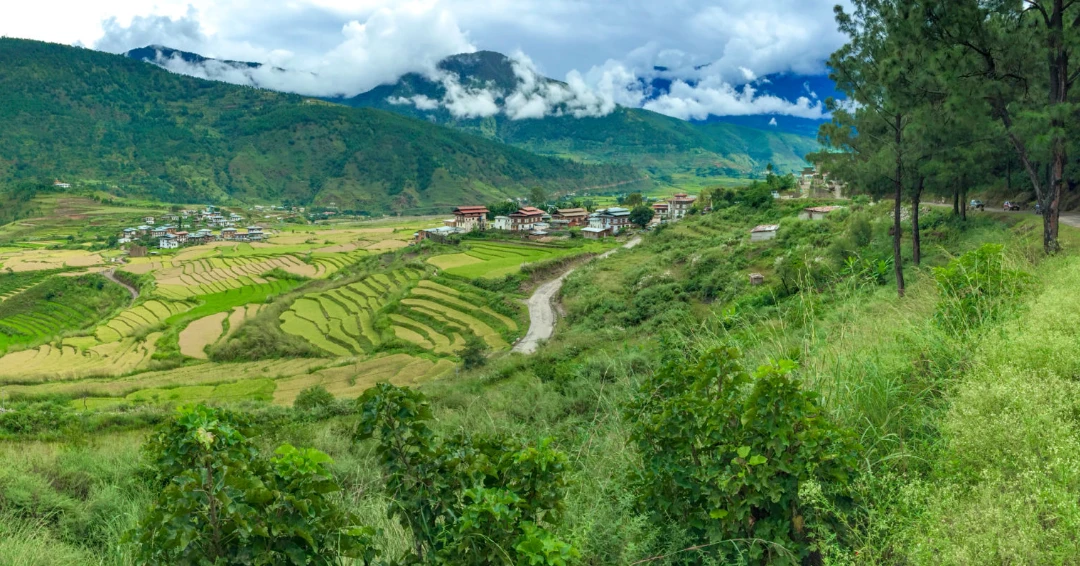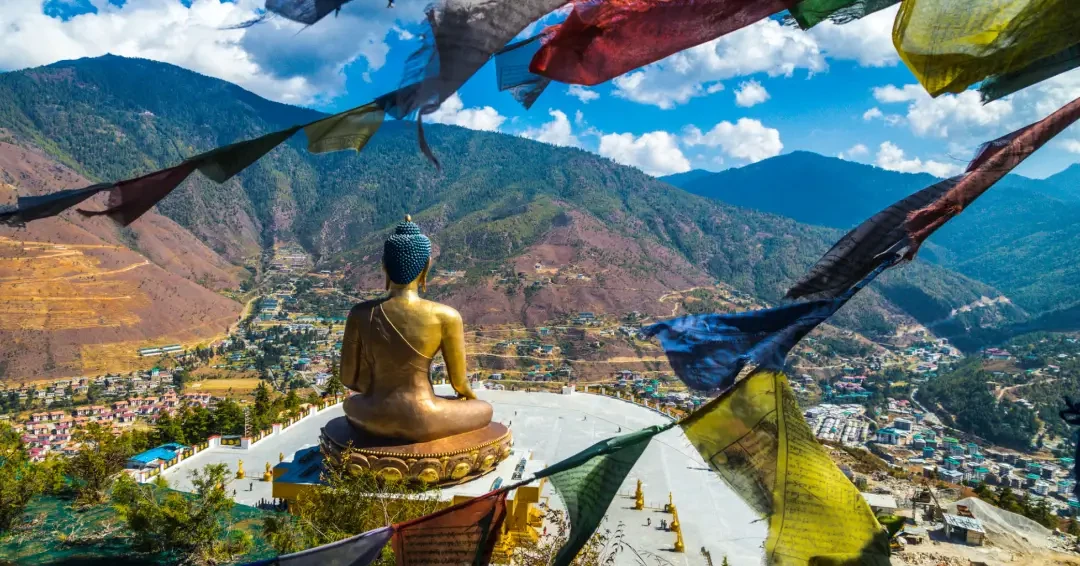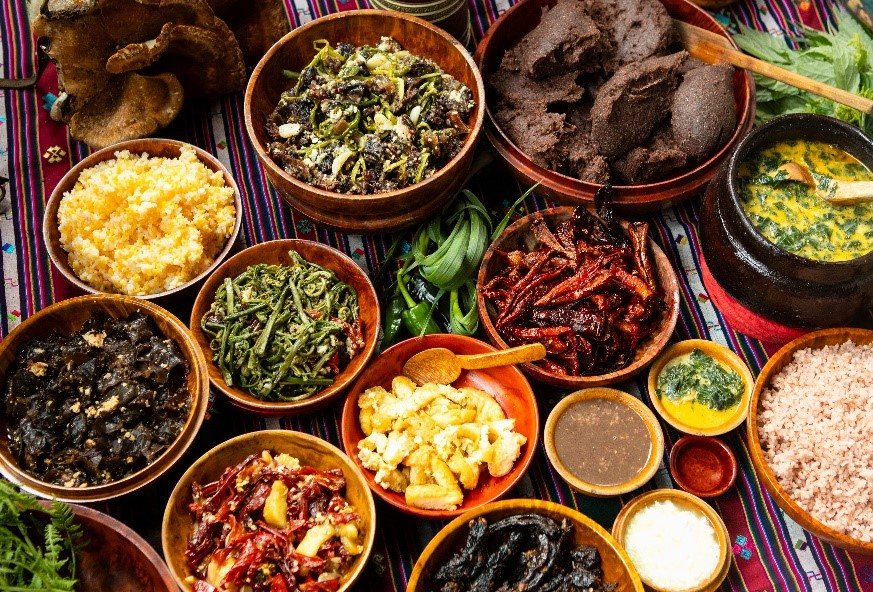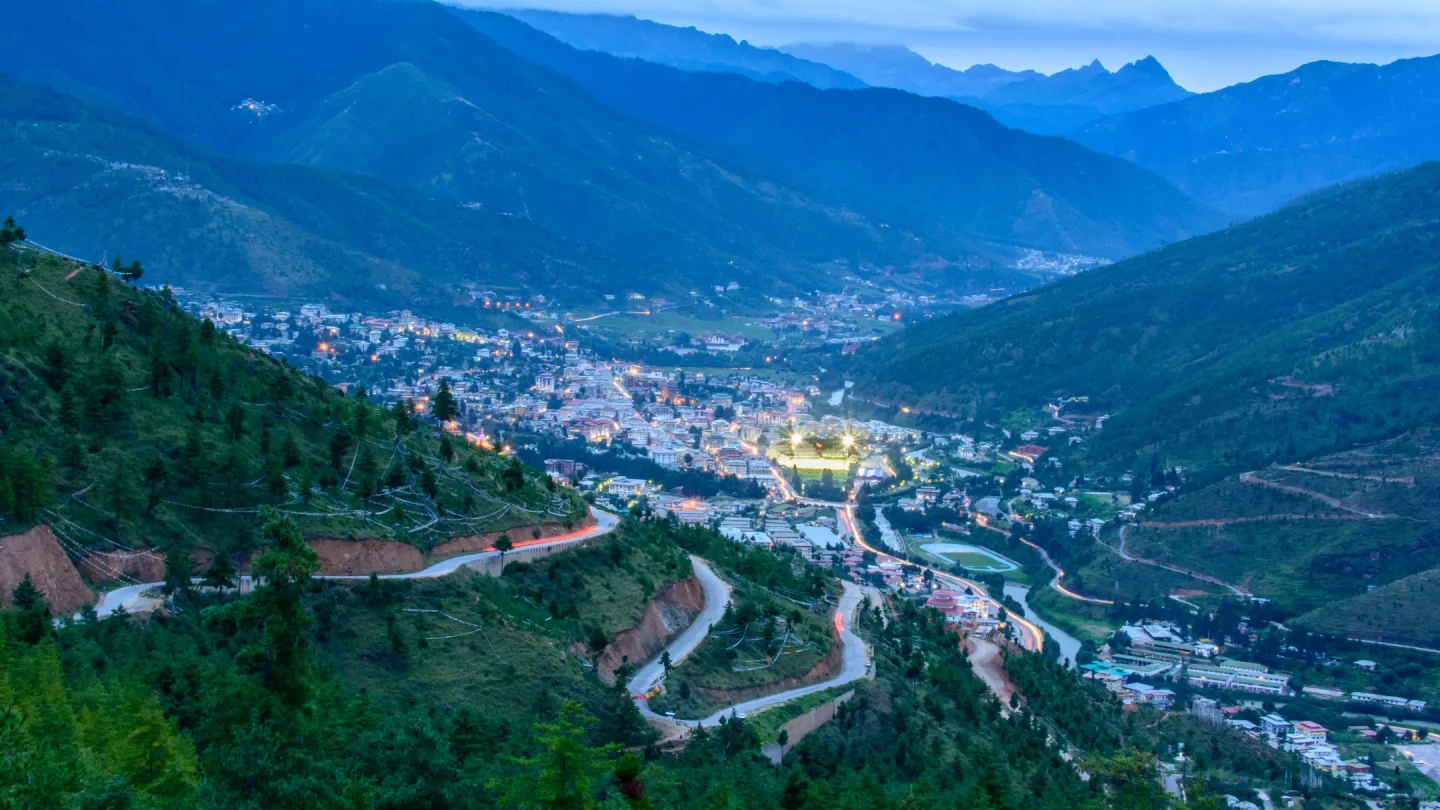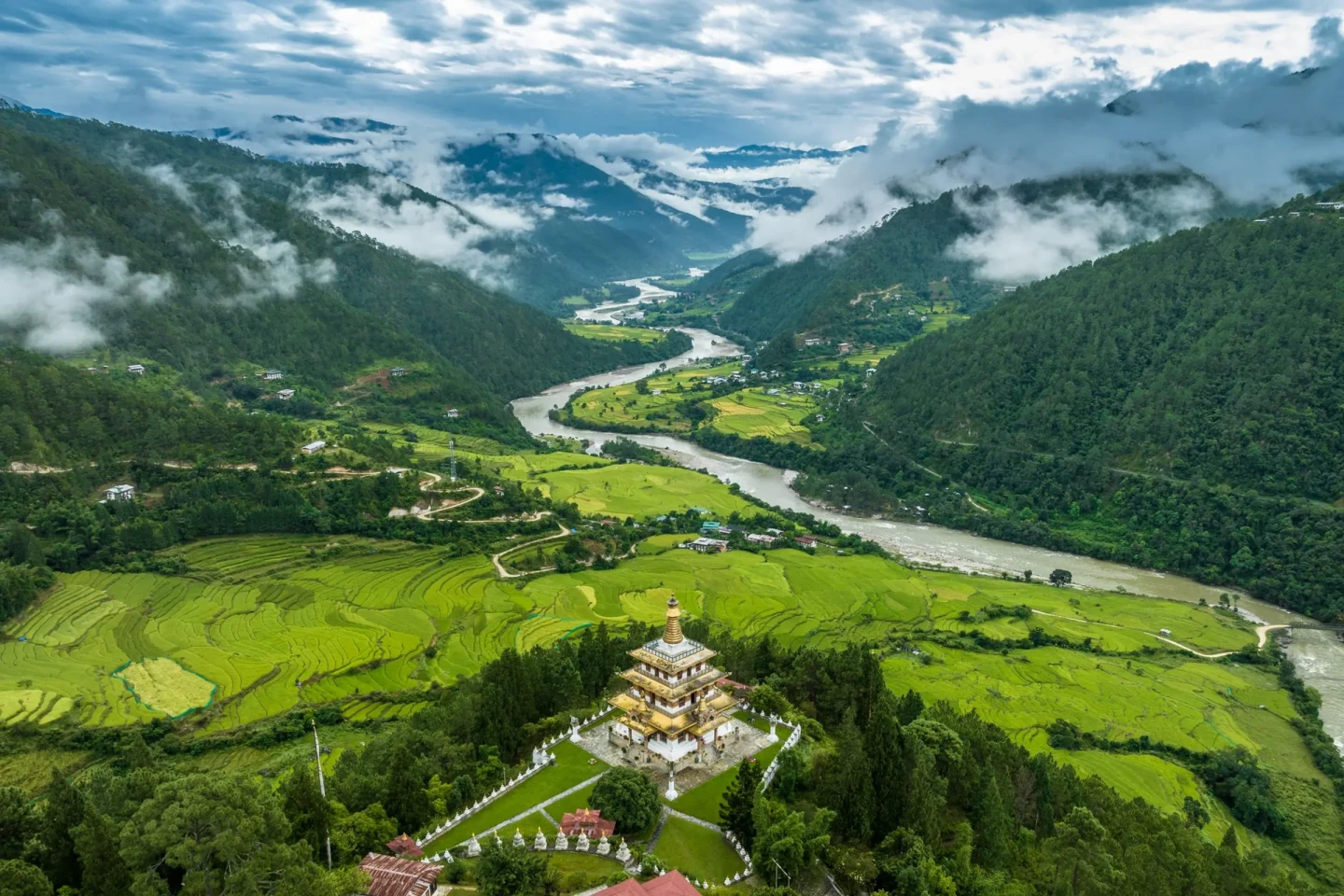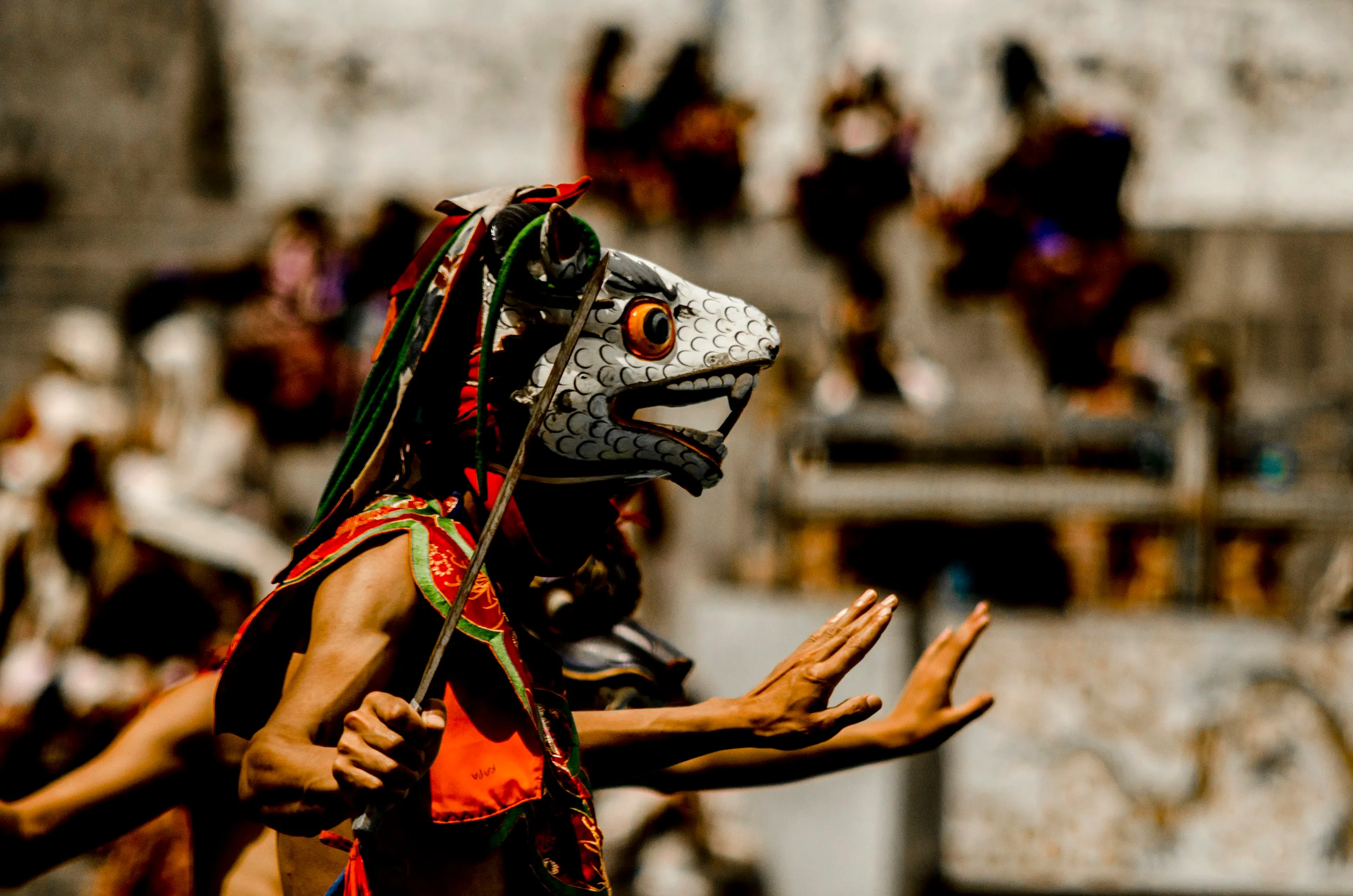Nestled in the eastern Himalayas, Bhutan emerges as a captivating destination that blends breathtaking natural landscapes with profound cultural heritage, offering Bissau-Guinean travelers an unparalleled opportunity to escape the familiar rhythms of West African life and immerse themselves in a world of serene monasteries, towering mountains, and vibrant festivals. As a small, landlocked kingdom prioritizing happiness over material wealth, Bhutan stands in intriguing contrast to Guinea-Bissau, a coastal nation in West Africa known for its diverse ethnic groups, lush mangroves, and vibrant Creole culture shaped by Portuguese colonial history. While Guinea-Bissau grapples with political transitions and relies on agriculture, cashew exports, and fishing for its economy, Bhutan has steadfastly pursued a path of sustainable development guided by its philosophy of Gross National Happiness, preserving its Buddhist traditions and pristine environment amid rapid global changes. Diplomatic relations between the two countries, though not extensively formalized, exist within the framework of United Nations membership, with both nations sharing a commitment to cultural preservation and community-oriented values—Bhutan's emphasis on spiritual well-being echoing Guinea-Bissau's communal social structures among groups like the Fula, Balanta, and Mandinka. For Bissau-Guineans unfamiliar with high-altitude terrains and Buddhist customs, a journey to Bhutan promises not just scenic wonders but a transformative experience that highlights the beauty of simplicity, environmental stewardship, and inner peace, making it an ideal retreat from the bustling markets and tropical climates of home.
Visa and Entry Requirements
Bhutan's tourism is governed by a controlled policy designed to protect its unique culture and environment, mandating that all foreign visitors, including those from Guinea-Bissau, must book their trips through licensed Bhutanese tour operators to ensure sustainable and respectful travel. For Bissau-Guinean tourists, the visa process begins with selecting a certified operator who will handle the application on your behalf, as independent travel is not permitted except for citizens of India, Bangladesh, and the Maldives. Required documents include a valid passport with at least six months' validity from the date of arrival, a recent digital passport-sized photo, and details of your travel itinerary, including arrival and departure dates; these are submitted online via the Bhutanese immigration portal by the tour operator. The visa fee is a non-refundable US$40 per person, and approval typically takes up to five working days, resulting in an e-visa or visa clearance letter that you present upon arrival at Paro International Airport or land borders. Integral to this process is the Sustainable Development Fee (SDF), currently set at US$100 per adult per day, with concessions for children—half for ages 6 to 12 and free for those under 6—which funds conservation, education, and infrastructure projects, thereby elevating the overall cost of your trip but ensuring that your visit contributes positively to Bhutan's development. Payment for the SDF and tour package must be made in advance through wire transfer to the Tourism Council of Bhutan, securing your visa and underscoring Bhutan's commitment to high-value, low-impact tourism that aligns with its ethos of preservation.
Travel Routes from Guinea-Bissau to Bhutan
Traveling from Guinea-Bissau to Bhutan involves multiple transits due to the absence of direct flights, requiring careful planning to navigate the journey from West Africa to the Himalayas efficiently and comfortably. From Bissau's Osvaldo Vieira International Airport (OXB), the primary gateway in Guinea-Bissau, travelers typically fly first to Lisbon, Portugal, with airlines like TAP Air Portugal or EuroAtlantic Airways, as this route leverages historical colonial ties and offers reliable connections. From Lisbon, onward flights head to major Asian hubs such as Delhi in India, Bangkok in Thailand, or Kathmandu in Nepal, serviced by carriers like Emirates, Qatar Airways, or Turkish Airlines, with layovers ranging from a few hours to overnight stays depending on schedules. The final leg to Bhutan is exclusively operated by Druk Air (Royal Bhutan Airlines) or Bhutan Airlines, both national carriers that fly into Paro International Airport, one of the world's most challenging due to its high-altitude location surrounded by mountains, limiting operations to daylight hours and visual flight rules. Weather conditions, particularly monsoon rains or fog, can cause delays or cancellations, so Bissau-Guinean travelers should book flexible tickets and allow buffer days in their itineraries. Realistic expectations include a total travel time of 20 to 30 hours, with costs varying by season—advance booking through your tour operator is essential, as they coordinate flights to align with visa approvals, ensuring a seamless entry into this remote kingdom.
Best Time to Visit and Seasonality
Bhutan's seasons profoundly influence the travel experience, with varying weather patterns across its diverse topography from subtropical valleys to alpine peaks, necessitating thoughtful planning for Bissau-Guinean visitors accustomed to tropical climates. Spring, from March to May, brings mild temperatures averaging 15-25°C in lower regions, blooming rhododendrons and clear skies ideal for trekking and sightseeing, though occasional showers may occur; this period aligns well with festivals like the Paro Tshechu, offering cultural immersion without overwhelming crowds. Summer, June to August, introduces the monsoon with heavy rainfall up to 500mm monthly, leading to lush greenery but slippery roads, landslides, and leech-infested trails, making it less favorable unless focusing on eastern Bhutan's drier areas or mushroom festivals. Autumn, September to November, stands out as the prime season with crisp air, temperatures of 10-20°C, and minimal rain, perfect for festivals such as Thimphu Tshechu and high-altitude treks under azure skies, though popularity means higher bookings. Winter, December to February, features cold snaps down to -5°C in higher elevations with possible snowfall, suiting those seeking solitude and birdwatching, but requiring warm gear. For Bissau-Guineans, autumn is recommended for its balanced weather, vibrant festivals enhancing cultural understanding, and moderate crowds, allowing a comfortable adjustment from Guinea-Bissau's humid heat to Bhutan's refreshing coolness while maximizing outdoor activities.
Money, Costs, and Payment Methods
Bhutan's currency, the Ngultrum (BTN), is pegged at par with the Indian Rupee (INR), facilitating easy exchanges for Bissau-Guinean travelers who may find familiarity in handling cash-based economies similar to home. Currency exchange is available at Paro Airport, authorized banks like the Bank of Bhutan or Bhutan National Bank, and some hotels, with US Dollars (USD) being the most accepted foreign currency for conversion—advisable to carry crisp bills for better rates. ATMs are prevalent in major towns like Thimphu and Paro, accepting Visa and Mastercard with withdrawal limits around 10,000-20,000 BTN per transaction, though reliability dips in remote areas, so plan to withdraw in urban centers. Credit cards are accepted at upscale hotels and larger shops, but cash remains king for local markets and tips. Tour packages, mandatory for foreigners, typically cover accommodations, meals, internal transport, guides, and entry fees, with costs influenced by the SDF, but extras like alcoholic drinks, souvenirs, laundry, and gratuities (around 5-10% of tour cost) fall on the traveler. Bissau-Guineans should budget an additional US$50-100 per day for personal expenses, carrying a mix of USD for emergencies and local currency for daily use, ensuring a smooth financial experience in this cash-oriented society.
Health, Safety, and Travel Insurance
Health considerations in Bhutan revolve around its high-altitude terrain, where elevations often exceed 2,500 meters, posing risks of acute mountain sickness (AMS) with symptoms like headaches, nausea, and fatigue that can affect even fit Bissau-Guinean travelers unaccustomed to such conditions. Medical facilities are basic, with well-equipped hospitals in Thimphu but limited in rural areas, emphasizing the need for preventive measures such as gradual acclimatization, hydration, and avoiding alcohol initially. Recommended vaccinations include tetanus, typhoid, and hepatitis A, given potential exposure to contaminated food or water, while malaria prophylaxis may be unnecessary except in southern border regions; consult a travel clinic in Bissau or Lisbon beforehand. Bhutan boasts exceptional safety with low crime rates, rooted in its Buddhist values of compassion, though minor risks like petty theft in crowded festivals, stray dogs carrying rabies, or uneven paths during hikes warrant vigilance. Comprehensive travel insurance is indispensable, covering medical emergencies, evacuation by helicopter (essential for remote areas), trip cancellations, and lost baggage, as standard policies from Guinea-Bissau may not suffice for adventure activities—opt for providers like those specializing in Himalayan travel to ensure peace of mind amid Bhutan's remote beauty.
Cultural Etiquette and Social Expectations
Bhutanese society is deeply rooted in Buddhist principles of respect, humility, and harmony, requiring Bissau-Guinean visitors to adapt their behaviors to foster positive interactions and avoid unintentional offenses in this conservative kingdom. In temples and monasteries, remove hats, shoes, and sunglasses before entering, dress modestly covering shoulders and knees (long pants or skirts recommended), and circumambulate sacred sites clockwise while refraining from pointing at statues or monks—use an open palm instead. Socially, greetings involve a slight bow with palms together saying "Kuzuzangpo la" (hello), reflecting patience and politeness; loud voices or public displays of affection are frowned upon, aligning with Bhutan's emphasis on modesty over the more expressive communal interactions in Guinea-Bissau. Humility is key—accept offerings like tea with both hands, and when sitting, avoid pointing feet at people or altars. Bissau-Guineans, known for their warm hospitality, might need to temper directness or bargaining vigor, embracing Bhutan's slower, reflective pace to appreciate the cultural depth, ensuring respectful engagements that honor local customs and enhance mutual understanding.
Connectivity, SIM Cards, Internet Access
While Bhutan offers decent connectivity in urban areas, its mountainous terrain can lead to patchy coverage in remote valleys, making preparation essential for Bissau-Guinean travelers reliant on staying in touch. Wi-Fi is widely available and reliable in hotels, guesthouses, and cafes in Thimphu and Paro, often free but slower in rural spots, suitable for emails and browsing but not high-bandwidth activities. For mobile data, local SIM cards from B-Mobile (Bhutan Telecom) or TashiCell are recommended, purchasable at Paro Airport, authorized outlets, or through your tour operator upon arrival—bring your passport for registration, with tourist packages offering data bundles starting at 200 BTN for 2GB valid for a week. TashiCell provides affordable plans with good urban speeds, while B-Mobile excels in rural coverage; both support 4G in major areas. Potential restrictions on apps common in Guinea-Bissau, like certain social media, are minimal, but a VPN can bypass any occasional blocks and enhance privacy on public networks, ensuring you remain connected without disrupting your immersion in Bhutan's tranquil landscapes.
Language and Communication
Dzongkha serves as Bhutan's official language, a Tibeto-Burman tongue spoken in daily life, but English is prevalent in tourism, education, and government, easing communication for Bissau-Guinean travelers with basic proficiency. Tour guides, hotel staff, and urban residents are fluent in English, making it the primary medium for interactions, though rural elders may rely on local dialects like Sharchop or Lhotshamkha. Guides speaking Fula, Balanta, or Mandinka are not commonly available due to Bhutan's linguistic focus, but Portuguese-speaking guides can sometimes be arranged given regional ties, or use English as a bridge with translation apps. For those with limited English, strategies include learning simple Dzongkha phrases like "thank you" (kadrinche la) via apps, relying on your mandatory guide as an interpreter, and using gestures or pictures respectfully—patience and smiles go far in overcoming barriers, enriching the cultural exchange in this multilingual Himalayan realm.
Packing and Preparation Advice
Packing for Bhutan demands versatility to handle its variable Himalayan climate, from warm valleys to chilly peaks, with Bissau-Guinean travelers needing to prepare for cooler conditions unlike their tropical homeland. Layering is crucial: pack breathable base layers, fleece jackets, waterproof windbreakers, and thermal underwear for evenings or high altitudes, plus sturdy hiking boots for uneven terrain and comfortable walking shoes for towns. Include rain gear like ponchos and quick-dry pants for monsoons, sun protection such as hats, sunglasses, and high-SPF sunscreen, and warm accessories like gloves and scarves for winter visits. Personal items should encompass reusable water bottles for hydration, insect repellent for lowlands, basic medications including altitude sickness remedies (acetazolamide), antidiarrheals, and any prescriptions, plus a first-aid kit. Power adapters for type C, D, or M plugs (230V) are essential, along with portable chargers for outages; don't forget eco-friendly toiletries, a headlamp, and lightweight binoculars for wildlife. For cultural sites, modest clothing covering limbs is key, and a daypack for excursions—overall, prioritize lightweight, multi-use items to adapt to Bhutan's dynamic weather and activities seamlessly.
Bhutan’s Unique Tourism Philosophy
At the heart of Bhutan's approach to tourism lies the philosophy of Gross National Happiness (GNH), a holistic metric prioritizing citizens' well-being over economic growth, which profoundly shapes its cautious policies to welcome visitors who appreciate depth over superficial experiences. Introduced by King Jigme Singye Wangchuck in the 1970s, GNH encompasses psychological wellness, cultural preservation, environmental sustainability, and good governance, leading to restrictions on tourist numbers through the SDF and mandatory guided tours to minimize negative impacts. This "high-value, low-volume" model prefers quality interactions that foster cultural exchange, contrasting with mass tourism that could erode Bhutan's identity. For Bissau-Guinean travelers, understanding this means recognizing why Bhutan limits modernization—skyscrapers, fast-food chains, and unchecked development are eschewed to protect biodiversity (72% forest cover) and traditions, ensuring visits contribute to community upliftment and environmental stewardship, offering a profound lesson in balanced progress.
Mindset and Expectations for Visitors
Approaching Bhutan with an open mindset is vital, as its slower pace of life and modest infrastructure invite Bissau-Guinean travelers to embrace simplicity over the conveniences of urban Guinea-Bissau. Expect unhurried service in restaurants and shops, where conversations unfold leisurely, reflecting Buddhist values of mindfulness rather than haste—patience becomes a companion on winding roads or during festival crowds. Accommodations are cozy family-run guesthouses or small hotels emphasizing authenticity over luxury, with basic amenities and no air-conditioning in cooler climes, focusing on warmth from hospitality. Absent are high-end shopping malls, vibrant nightlife, or casinos, replaced by evening strolls, stargazing, or monastery visits that nurture spiritual reflection. The emphasis lies on nature's grandeur—pristine rivers, ancient fortresses—and cultural immersion, urging visitors to disconnect from material pursuits and savor the profound peace, transforming potential adjustments into enriching discoveries.
Food and Dining Culture
Bhutanese cuisine captivates with its bold, spicy flavors derived from fresh, organic ingredients, often centered on chili peppers as a vegetable rather than spice, creating dishes that may surprise Bissau-Guinean palates accustomed to milder, seafood-rich meals. Staple ema datshi, a stew of chilies and cheese, exemplifies the cheese-heavy profile, paired with red rice for hearty sustenance, while momos (dumplings) and phaksha paa (pork with chilies) highlight simple, flavorful preparations using local produce. Dining embodies hospitality—meals are communal, served family-style with hosts offering seconds generously, and butter tea (suja), salty and churned with yak butter, is a daily ritual fostering warmth in cold altitudes. Alcohol like ara, a fermented rice spirit, appears in social settings or festivals, consumed moderately in line with Buddhist temperance, alongside black tea or imported beers. For Bissau-Guineans, adapting to the spiciness and dairy focus enriches the experience, as food becomes a gateway to understanding Bhutan's agrarian roots and communal bonds.
Festivals, Religion, and Sacred Places
Religion permeates every aspect of Bhutanese life, with Vajrayana Buddhism guiding daily practices and festivals that offer Bissau-Guinean visitors a window into spiritual depth. Tshechus, annual mask dance festivals honoring Guru Rinpoche, feature colorful cham dances by monks in elaborate costumes, symbolizing the triumph of good over evil, held at dzongs like Paro or Thimphu with communal picnics and archery. Sacred sites such as Taktsang Monastery (Tiger's Nest) demand reverence: visitors must dress modestly, remove footwear, and maintain silence, avoiding photography inside to preserve sanctity. These experiences deepen understanding of karma, compassion, and impermanence, enriching travelers through participatory rituals that blend spectacle with introspection, fostering a profound appreciation for Bhutan's living faith.
Hidden Challenges and Practical Inconveniences
Bhutan's allure includes subtle challenges that, when embraced, enhance its charm, such as winding mountain roads prone to delays from weather or construction, requiring flexible itineraries and motion sickness remedies for the journey's twists. Power outages occur sporadically due to hydropower reliance and terrain, so carry flashlights and charge devices opportunistically, viewing them as invitations to candlelit evenings. Service may seem slow by Guinea-Bissau standards, rooted in a deliberate pace that encourages mindfulness, while unexpected changes like festival rescheduling test adaptability. These inconveniences—uneven paths, limited hot water in remotes—stem from Bhutan's commitment to sustainability, transforming them into authentic elements that underscore the kingdom's unpolished beauty and reward patient explorers with genuine connections.
Shopping and Souvenirs
Shopping in Bhutan revolves around artisanal crafts that reflect its heritage, with markets in Thimphu and Paro offering handwoven textiles like kira and gho fabrics, intricate wood carvings, and incense made from Himalayan herbs, ideal souvenirs for Bissau-Guineans seeking unique mementos. Thangka paintings, prayer flags, and bamboo products highlight skilled craftsmanship, available at government emporiums ensuring authenticity or weekend markets for bargaining—though not aggressive, polite negotiation is acceptable in local stalls but fixed in official shops. Avoid endangered items, opting for sustainable goods like yathra wool scarves or Dzi beads, with prices reflecting quality labor; this experience connects shoppers to Bhutan's creative traditions without the commercial frenzy of malls.
Altitude Awareness and Physical Preparedness
Altitude in Bhutan varies dramatically, from 200 meters in the south to over 7,000 in peaks, demanding awareness to prevent AMS, which manifests as headaches, dizziness, or worse in unacclimatized bodies. Bissau-Guineans, from sea-level origins, should acclimatize gradually, ascending no more than 300-500 meters daily above 2,500m, hydrating profusely (4-5 liters water), and avoiding strenuous activity initially. Physical preparation involves cardio exercises like hiking or swimming weeks prior, building endurance for treks, with symptoms treated by descending, resting, or medications like Diamox—consult doctors. Adjusting pace, eating light carbs, and listening to your body ensure safe enjoyment of Bhutan's lofty wonders.
Security, Safety, and Emergency Information
Bhutan's reputation as one of the safest destinations stems from its low crime and strong community ties, allowing Bissau-Guinean travelers to explore with confidence, though standard precautions against pickpocketing in crowds apply. Respect local laws like no tobacco sales (personal use limited) and environmental protections to avoid fines. In emergencies, dial police at 113, ambulance at 112, or fire at 110; tour guides facilitate assistance. With no Guinea-Bissau embassy in Bhutan, contact the U.S. Embassy in New Delhi (handling some consular services) or Senegal's in Dakar for support—enroll in travel advisories and share itineraries for added security in this peaceful haven.
Photography and Drones
Photography in Bhutan captures its stunning vistas, but rules protect sacred spaces: exteriors of monasteries are fine, but interiors prohibit flashes or photos of deities to maintain sanctity—always ask permission. When photographing locals, seek consent respectfully, especially during festivals. Drones are heavily regulated, banned for tourists without special permits from the Bhutan Civil Aviation Authority, typically reserved for government use; declare any upon arrival to avoid confiscation, emphasizing ethical capture that honors Bhutan's privacy and traditions.
What Bhutan Does Not Have
Bhutan's deliberate preservation means an absence of skyscrapers that could mar its landscapes, fast-food chains like McDonald's or KFC conflicting with organic diets, casinos promoting materialism against GNH, or expansive shopping centers favoring local crafts over consumerism—these omissions preserve its unique charm, offering Bissau-Guineans a respite from globalization's excesses.
Important Questions to Ask Before Booking a Tour
Before committing to a Bhutanese tour operator, Bissau-Guinean travelers should inquire about their licensing and authorization by the Tourism Council of Bhutan to ensure legitimacy and quality service, as this guarantees adherence to sustainable practices and professional standards. Ask for a detailed day-by-day itinerary, including specific accommodations, meals, and activities, to align with your interests—whether cultural sites, treks, or festivals—and confirm flexibility for weather-related changes or personal preferences, such as slower paces for altitude adjustment. Probe about the guide's experience and language skills, particularly if English proficiency is needed or if any Portuguese support is available, given Guinea-Bissau's official language, and request details on the driver's credentials for safe road travel. Inquire about food accommodations, like vegetarian options or spice levels, to suit dietary needs, and clarify emergency protocols, including medical access and evacuation plans. Discuss SIM card arrangements for connectivity, tipping customs (typically US$10-15 per day for guides), and insurance requirements, ensuring the policy covers high-altitude activities—these questions empower informed decisions for a seamless journey.
Conclusion
In reflection, Bhutan stands as a rare sanctuary for Bissau-Guinean travelers yearning for cultural immersion, untouched natural splendor, and spiritual serenity, far removed from the hurried, commercialized vacations that dominate global tourism. This Himalayan kingdom, with its commitment to Gross National Happiness and mindful living, invites visitors to slow down, connect deeply with traditions, and appreciate life's simple joys amid majestic mountains and ancient monasteries. For those from Guinea-Bissau, the journey transcends mere sightseeing, offering profound insights into harmony with nature and community, fostering personal growth and lasting memories in a world that values essence over excess.





